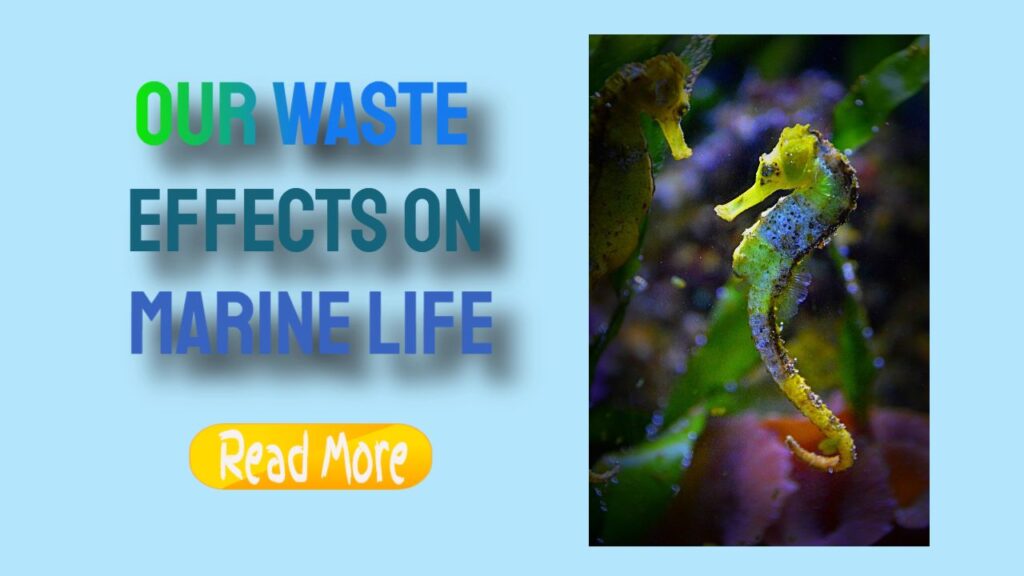Key Topics to Investigate for Understanding Marine Pollution
- In-Depth Analysis of the Environmental Impacts Caused by Oil Spills
- Comprehensive Assessment of the Toxicity of Oil Spills on Human Health
- Detailed Exploration of Ocean and Coastal Acidification Effects on Ecosystems
- Critical Evaluation of Major Threats Facing Marine Environments
- Thorough Examination of the Societal Impacts Resulting from Oil Spills
- In-Depth Analysis of the Economic Consequences Arising from Oil Spills
- Identification of Major Effects Oil Spills Have on Marine Ecosystems
- Thorough Investigation of Oil Spills' Impact on Marine Animals
In-Depth Analysis of the Environmental Impacts Caused by Oil Spills
The challenge of marine pollution encompasses numerous detrimental factors, such as chemical, industrial, and agricultural contaminants, which have seen a marked increase in frequency and severity in recent years. This pervasive issue is exemplified by various incidents, including devastating oil spills, untreated sewage discharges, and the spread of invasive species. Consequently, there is heightened concern among scientists and environmental advocates regarding the adverse effects of these pollutants, which can jeopardize our delicate ecosystems as well as human health. Ongoing monitoring efforts are essential for quantifying levels of chemical and plastic pollution in our oceans. These initiatives employ diverse methodologies to trace pollutant discharges from land-based activities, including oil spills. Programs like Horizon 2020 are pivotal in fostering a healthier Mediterranean by identifying pollution sources and advocating for sustainable marine conservation practices.
Research on marine pollution primarily concentrates on its impacts on biodiversity, human health risks, and the overall quality of marine experiences. This comprehensive analysis will explore the intricate interplay between these categories, elucidating their significance. For instance, while some seabird populations suffer negative consequences due to oil exposure, the overall stocks of marine species have not demonstrated significant declines attributable solely to pollution. Instead, factors such as reproductive success and population dynamics are often more heavily influenced by external variables like climate change. Interestingly, even regions like the North Sea, which have experienced heightened pollution levels, have reported increases in fish populations like cod and haddock over the decades, highlighting the complex relationship between pollution and marine life.
Deep-sea mining activities also contribute significantly to marine pollution, as these operations extract valuable minerals such as silver, gold, and copper. Such mining practices result in sulphide deposits at great depths, which may release harmful substances that exacerbate ocean toxicity. The scientific community is actively engaged in ongoing research to fully comprehend the environmental ramifications of deep-sea mining. However, it is evident that these operations pose considerable risks to marine ecosystems, potentially causing irreversible damage and increasing the likelihood of oil spills and further contamination.
Comprehensive Assessment of the Toxicity of Oil Spills on Human Health
While oil spills are significant contributors to marine pollution, they represent only a fraction of the overall issue. Other critical sources of ocean pollution include the discharges and runoff from urban and agricultural areas. Each year, millions of pounds of untreated waste, encompassing sewage and toxic materials, enter rivers and ultimately flow into the ocean. Industrial processes, alongside agricultural runoff, exacerbate this issue by introducing hazardous chemicals and pollutants into our waterways. The cumulative effects of these pollutants pose severe risks not only to marine ecosystems but also to human health, making it imperative to address all sources of marine pollution comprehensively.
Ship-based pollution remains a major source of maritime contamination, particularly due to oil spills. Crude oil, which has the potential to linger in ocean waters for years, is highly toxic to marine organisms and can lead to suffocation when marine animals become trapped in oil. The complexity of cleaning up oil spills further complicates the recovery of affected marine environments. The extent of damage wrought by oil on coastal ecosystems is influenced by various factors, including the specific type of oil involved, its viscosity, and the effectiveness of the clean-up measures implemented. For instance, lighter oils may affect marsh vegetation differently than heavier crude oils, creating unique challenges for recovery efforts. Researchers continue to delve into the ecotoxicology of marine pollutants to better understand their impacts on human and environmental health.
Ultimate Secrets To Saltwater Fish And Invertebrates
Detailed Exploration of Ocean and Coastal Acidification Effects on Ecosystems
Consider the vast diversity of life inhabiting our oceans. The effects of increased acidity in marine environments can significantly alter the dynamics of various plant and animal species, often with unpredictable consequences. For example, while some organisms, such as seagrasses, may thrive with elevated levels of dissolved carbon dioxide, others, like oysters, may struggle as their larvae fail to survive in more acidic conditions. Consequently, ocean and coastal acidification is likely to induce shifts within entire ecosystems, affecting species abundance and interactions as they adapt to these changing conditions.
Approximately 80% of marine pollution is believed to originate from land, primarily due to the pressures exerted by growing coastal populations. Nutrient pollution, mainly from agricultural runoff and sewage discharges, overwhelms marine environments with excessive nitrogen and phosphorus, resulting in harmful algal blooms. The decay of these blooms depletes oxygen levels, creating hypoxic zones where marine life cannot survive. As the ocean, which accounts for 71% of our planet’s surface, continues to absorb greenhouse gases and experiences rising temperatures, significant disruptions to the delicate balance of marine and coastal ecosystems occur. Additionally, the melting ice caps and altered ocean currents further contribute to these ongoing environmental changes.
Plastic pollution has emerged as a critical concern in coastal and marine ecosystems globally. The continuous influx of plastic waste disrupts the structural integrity and functional dynamics of these ecosystems, posing direct and indirect threats to marine life. The sources of plastic pollution are varied and stem from both land-based and ocean-based activities, manifesting in diverse forms such as metaplastic, macroplastics, mesoplastics, and microplastics. Understanding the implications of plastic pollution is essential for developing effective strategies to mitigate its impacts on marine environments and ensure healthier ecosystems for future generations.
Critical Evaluation of Major Threats Facing Marine Environments
Antimicrobial resistance (AMR) has likely been a component of marine microbial communities for millennia, yet its prevalence has surged in recent years, particularly in coastal waters. This increase is thought to correlate with the growing introduction of pollutants and pathogens from land-based sources into marine environments. The consequences of plastic litter on marine ecosystems have been extensively documented, demonstrating that numerous marine species face threats from plastic waste, which can jeopardize their survival, particularly as many species are already vulnerable due to other anthropogenic pressures.
Marine animals often suffer from entanglement and ingestion of plastic debris, leading to severe health outcomes and population declines. Lesser-known threats include the indirect consequences of plastic waste on invasive species and the potential for harmful chemicals, such as polychlorinated biphenyls, to infiltrate the food chain. The socio-economic impacts of marine litter are complex and interconnected, presenting challenges for effective management and mitigation strategies. Research on ghost fishing, for example, reveals the economic losses associated with lost fishing gear, illustrating the broader implications of marine pollution on livelihoods and coastal economies.
Thorough Examination of the Societal Impacts Resulting from Oil Spills
The escalating pollution of our oceans due to human activities is undermining the sustainability of marine ecosystems, resulting in far-reaching societal consequences. Advanced monitoring technologies, including airborne and spaceborne sensors, are being utilized to provide comprehensive insights into major marine pollutants, such as oil spills, chemical discharges, and algal blooms. However, evaluating the impact of these pollutants is complex, given their dynamic nature and the limitations of existing data concerning their specific characteristics and effects, particularly in optically shallow waters.
Notable oil spill incidents, such as the Exxon Valdez and Deepwater Horizon disasters, have left enduring scars on marine environments and the communities that depend on them. The Torrey Canyon spill in 1967 marked one of the first major oil disasters, releasing an estimated 25-36 million gallons of crude oil off the coast of Cornwall, England, and severely impacting coastlines in both the UK and France. The Deepwater Horizon spill, which originated from the seabed, wreaked havoc on the Gulf Coast's ecosystem, affecting marine life at all levels. In these maritime disasters, fish and other marine organisms are often the first affected, facing exposure to toxic oil components that can lead to long-term health issues and reproductive challenges.
In-Depth Analysis of the Economic Consequences Arising from Oil Spills
Estuaries, often located near petrochemical industries, are particularly vulnerable to oil exposure due to transport activities via ships and pipelines. Oil spills can inflict severe damage on vital intertidal habitats, including salt marshes and mangroves, leading to long-lasting ecological repercussions. The entanglement of marine animals in debris and their accidental ingestion of harmful materials further compounds the risks posed by oil spills, impacting species such as seabirds, turtles, and marine mammals.
Oil plays a crucial role in the modern economy, serving as both an affordable energy source and a raw material for plastics. The impacts of oil and gas exploration and production are multifaceted, affecting ecosystems at all stages, from exploration to extraction and eventual combustion. In the North Sea, it is estimated that offshore activities contribute to 29% of the total oil input into marine environments, highlighting the ongoing risks associated with oil production and its long-term consequences for both marine life and economic stability.
Identification of Major Effects Oil Spills Have on Marine Ecosystems
Despite advancements in environmental regulations, oil spills remain a significant threat to marine ecosystems. Although most oil spills are relatively small, collectively they contribute to a substantial amount of oil entering marine environments, with over 5.65 million tonnes released due to tanker spills from 1970 to 2009. The environmental risks associated with offshore oil production are profound, as massive spills can have catastrophic impacts on marine wildlife and coastal communities.
The Deepwater Horizon blowout in 2010 serves as a stark reminder of the potential devastation caused by offshore drilling accidents. While natural disturbances often allow ecosystems to recover, oil spills introduce persistent contaminants that can disrupt marine life for generations. Larger marine mammals and seabirds are particularly vulnerable to the immediate and long-term health impacts of oil exposure, which can lead to physiological changes, immune system issues, and reproductive failures.
Many coastal and marine ecosystems are adapted to withstand natural disturbances, which can create opportunities for new organisms to flourish. However, oil spills introduce a level of disruption that can hinder these natural recovery processes. Understanding and supporting the natural restoration mechanisms of affected ecosystems is crucial for mitigating the long-term effects of oil spills and promoting resilient marine environments.
Thorough Investigation of Oil Spills' Impact on Marine Animals
Oil and gas exploration activities present a myriad of challenges for marine ecosystems, primarily through oil spills and associated noise pollution. Each year, thousands of oil spills occur in the United States alone, leading to severe damage to marine habitats and wildlife. The consequences of oil spills can persist for decades, with cleanup efforts often only removing a fraction of the oil, while sometimes introducing additional harmful chemicals that worsen the issue. Marine mammals, such as dolphins and whales, face heightened health risks when exposed to oil and toxic substances from drilling operations.
The impact of marine debris, commonly referred to as “plastic trash,” is also a significant concern. Millions of Americans enjoy coastal activities, often oblivious to how everyday actions contribute to marine pollution. Marine litter threatens the ecological integrity of coral reefs and other critical habitats, leading to declines in biodiversity and disrupting essential ecological functions. All species of sea turtles and over half of known marine mammal species are adversely affected by marine litter, which can lead to entanglement, ingestion, and potential toxicity from chemicals leaching from plastics.
The Ocean Conservancy estimates that plastic pollution affects over 690 species of marine life, underscoring the urgent need for innovative solutions. Some businesses are exploring alternatives to traditional plastic products, such as edible six-pack rings made from leftover brewing materials. The lack of comprehensive scientific data on marine plastic pollution, despite its widespread acknowledgment, highlights the necessity of ongoing research and public awareness to effectively address this pressing issue.
Coastal regions are increasingly impacted by human activities, with marine pollution and climate change as key challenges faced by these environments. Understanding the cumulative effects of these pressures is essential for effective coastal zone management and developing proactive strategies to mitigate environmental risks. The responsibility lies with every individual to contribute to the preservation of our oceans, ensuring they remain healthy and vibrant for future generations.
The Article Impact of Waste on Marine Life Was Found On https://limitsofstrategy.com



What a deep dive into the murky waters of marine pollution! It’s almost like the ocean is throwing a constant tantrum about the way we treat it. I mean, between oil spills and ocean acidification, it’s like a soap opera that nobody asked for, but we’re all glued to anyway.
This is an important discussion, particularly as the frequency of oil spills and their lasting impacts on marine environments appears to be escalating. The socioeconomic ramifications of such events are often overshadowed by immediate environmental concerns, but I believe they deserve equal scrutiny. For instance, communities heavily reliant on fishing are devastated not just by the loss of marine life but also by the long-term disruption of their livelihoods.
You bring up a crucial point about the escalating frequency of oil spills and their multifaceted impacts. It’s easy to focus solely on the immediate environmental destruction, but the socioeconomic ramifications, especially for communities that depend on fishing, are often overlooked. Imagine the emotional toll on families who have fished those waters for generations, suddenly facing uncertainty about their livelihoods.
You’ve really captured the essence of the situation. The emotional toll on families who have fished those waters for generations is something that often gets lost in the larger narrative of environmental impact. It’s heartbreaking to think about the uncertainty they face and how these spills disrupt not just their livelihoods, but their identities and community cohesion as well.
You’ve touched on something crucial that often doesn’t get the attention it deserves. When an oil spill occurs, the immediate visuals of slick waters and distressed wildlife tend to dominate the headlines, but the broader consequences for local communities can be even more devastating.
“To explore more about the intricate relationship between oil spills and their socioeconomic impacts on coastal communities, check out this insightful resource.”
https://cnisclub.org/quillbot
You raise a crucial point about the long-term impacts of oil spills on fishing communities. It’s easy to get caught up in the immediate environmental damage and overlook how these events ripple through local economies. When fishing isn’t just a job but a way of life, the psychological toll can be immense. It affects everything from food security to cultural identity.
“You’re absolutely right; the socioeconomic effects of oil spills are critical to address. To explore more about the interconnected impacts on communities and ecosystems, check out this insightful resource!”
https://cnisclub.org/quillbot
You’ve touched on such an important perspective. The immediate effects of oil spills certainly get a lot of attention, but it’s compelling to think about the broader socio-economic implications, especially for fishing communities. For many, fishing isn’t just about income; it’s deeply tied to cultural heritage and personal identity. When an event like an oil spill occurs, it can shatter that sense of belonging and purpose, leading to psychological distress that lingers long after the environmental damage is addressed.